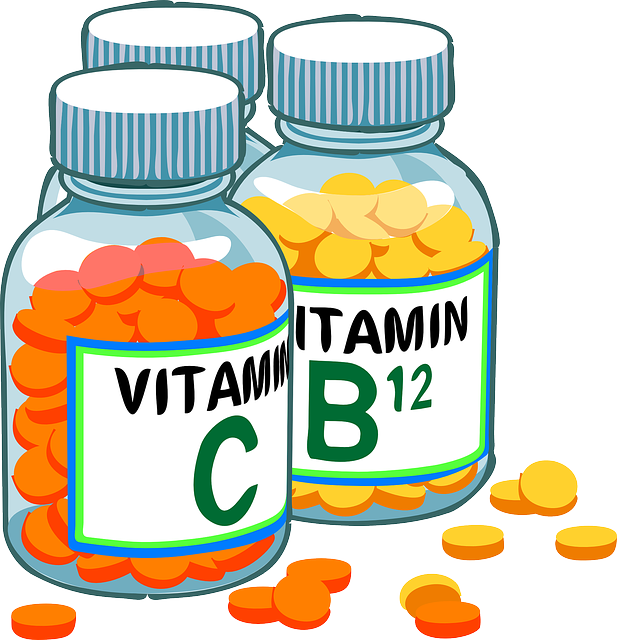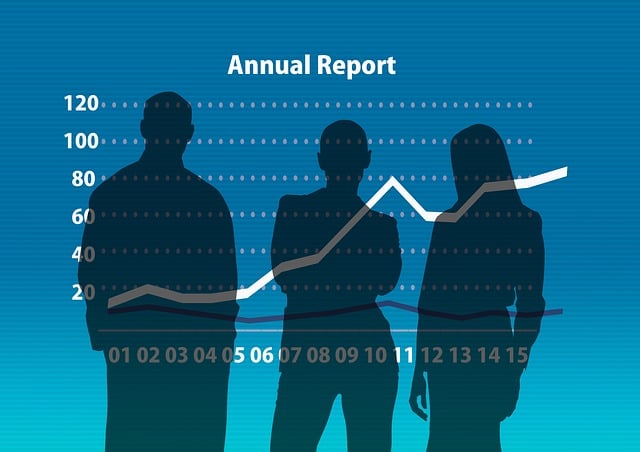Translation services play a pivotal role in ensuring that UK Public Health Reports are accessible and accurately conveyed to diverse linguistic groups within the UK. These specialized services employ linguists who are adept at navigating public health terminology, medical jargon, and cultural nuances to provide precise translations that align with regulatory standards set by entities like the NHS and ONS. By leveraging advanced translation memory software, subject matter experts, and a comprehensive quality assurance process, these services guarantee the integrity of the original reports while facilitating clear communication across multilingual communities. This commitment to high-quality translation upholds ethical and compliance standards in public health messaging, contributing significantly to informed decision-making and improved health outcomes for all UK residents.
In the realm of public health, the dissemination of accurate and clear information is paramount. With the UK’s diverse population and global connections, ensuring that public health reports meet stringent regulatory standards and are accessible to all is a complex yet critical task. This article delves into the intricacies of translation services for UK Public Health Reports, examining how they align with regulatory standards, address accuracy and reliability concerns, and navigate data protection and confidentiality in multilingual contexts. We will explore the challenges and best practices for translating public health information, enhancing report credibility and clarity across linguistic barriers. A case study illustrates the effective application of these translation services within a UK public health framework. Join us as we explore the intersection of language, regulation, and health communication.
- Overview of UK Public Health Reporting Standards
- The Role of Translation Services in Public Health Communication
- Compliance with Regulatory Frameworks for UK Public Health Reports
- Accuracy and Reliability in Multilingual Public Health Reporting
- Data Protection and Confidentiality Concerns in Translated Reports
- The Impact of Professional Translation on Public Health Report Credibility
- Challenges in Translating Public Health Information for Diverse Populations
- Ensuring Clarity and Precision: Best Practices for Translating UK Public Health Reports
- Case Study: Effective Use of Translation Services in a UK Public Health Context
Overview of UK Public Health Reporting Standards

UK public health reporting standards are stringent and designed to ensure that reports are clear, accurate, and accessible to a wide range of stakeholders, including healthcare professionals, policymakers, and the general public. These standards are not only critical for informing public health strategy but also for international collaboration, as they often require translation services for UK Public Health Reports to be comprehended by non-English speaking audiences. The Department of Health and Social Care, along with the National Institute for Health and Care Excellence (NICE), sets out comprehensive guidelines that cover report structure, evidence presentation, and data interpretation. These guidelines mandate that reports include not only the raw data but also its implications in understandable language. Furthermore, they emphasize the importance of consistency across reports to facilitate comparative analysis over time and between regions. The use of professional translation services is pivotal in this context, as it ensures that the nuances and complexities of public health information are accurately conveyed in different languages, maintaining the integrity and reliability of the data for informed decision-making on a global scale.
The Role of Translation Services in Public Health Communication

The translation of UK public health reports into languages other than English is a critical aspect of effective public health communication, ensuring that vital information reaches diverse populations with different linguistic needs. High-quality translation services for UK Public Health Reports are indispensable in this context, as they facilitate the accurate and culturally sensitive transfer of complex health information. These services must adhere to stringent regulatory standards, which include not only the linguistic precision but also a deep understanding of cultural nuances that can affect how messages are interpreted across different communities. The translation process must maintain the integrity of the original content, conveying the same meaning, tone, and intent in the target language. This is crucial for public health campaigns aimed at informing, educating, and empowering all segments of society to make informed health decisions.
In the UK, regulatory standards dictate that translation services for UK Public Health Reports must be provided by professionals with expertise in both the source and target languages, as well as knowledge of the subject matter. These experts undergo rigorous training to ensure compliance with industry-specific regulations, such as the NHS guidelines on communication. The use of automated translation tools is generally discouraged due to the potential for misinterpretation and errors that could lead to confusion or misinformation among the public. Consequently, the role of human translators, equipped with the necessary linguistic and cultural competencies, is paramount in safeguarding public health communication and ensuring that all individuals have access to clear, accurate, and actionable health information tailored to their language preferences.
Compliance with Regulatory Frameworks for UK Public Health Reports

UK public health reports must adhere to a robust regulatory framework to ensure they provide accurate, relevant, and timely information for policymakers, healthcare professionals, and the public. This framework is established by a combination of national and international guidelines, including but not limited to the UK’s Regulatory Standards for Public Health Science, the Framework for Responsible Research in Public Health, and the General Data Protection Regulation (GDPR) which governs data protection and privacy. The process of ensuring compliance involves rigorous peer review, transparent methodologies, and clear reporting that can be understood by a diverse audience, including those who may require translation services for UK public health reports. These translation services play a critical role in making the content accessible to stakeholders across various linguistic backgrounds, thereby enhancing global understanding and collaboration. The UK’s commitment to upholding these standards is evident in the meticulous approach taken by public health bodies to compile data, interpret findings, and present conclusions in a format that aligns with regulatory requirements and fosters international cooperation. This commitment not only ensures the integrity of the reports but also their utility in informing public health strategies and interventions that are responsive to the needs of diverse populations within the UK and globally.
Accuracy and Reliability in Multilingual Public Health Reporting

Within the UK’s multicultural landscape, public health reports must be accessible to all communities, regardless of language barriers. The provision of accurate and reliable translation services for UK Public Health Reports is paramount to ensure that critical health information reaches a diverse audience effectively. These translations must maintain the original report’s integrity and nuances, as misinterpretation or errors can have significant consequences on public health outcomes. The UK’s regulatory standards for translation services are stringent, mandating not just linguistic accuracy but also cultural relevance. This is to ensure that the translated content resonates with the intended audience, who may have different health literacy levels and societal norms. Professionally rendered translations enable a more inclusive approach to public health communication, fostering greater understanding and compliance among multilingual populations within the UK. The reliability of these translation services is a cornerstone in upholding the trust and credibility of public health advisories and reports. As such, investment in robust translation protocols and continuous quality checks is essential to safeguard the health and well-being of all individuals residing within the UK’s borders.
Data Protection and Confidentiality Concerns in Translated Reports

In the realm of public health, the translation of reports to cater to diverse linguistic communities within the UK is both a necessity and a complex task. The use of professional translation services for UK Public Health Reports is paramount to ensure that critical information regarding health outcomes, trends, and interventions is accurately conveyed across different languages. A pivotal aspect of this process involves adhering to stringent data protection and confidentiality standards set forth by regulations like the General Data Protection Regulation (GDPR). The translation must preserve the privacy of individuals whose data is being reported, maintaining the integrity of personal health information while navigating linguistic nuances. Translation agencies specialising in public health reports must employ skilled translators who not only possess a deep understanding of both source and target languages but also are well-versed in the confidentiality requirements that govern such sensitive information. This dual expertise ensures that data protection is not compromised during the translation process, thus upholding the trust and security required by the public health sector and its stakeholders.
Furthermore, the translation of these reports involves a meticulous approach to maintain the original context, intent, and meaning. The translation services for UK Public Health Reports must be precise, as any mistranslation could lead to misinterpretation or incorrect public health decisions. The implementation of robust data protection measures within these agencies is essential, as they handle potentially sensitive information that requires the highest levels of confidentiality. By combining expertise in public health with advanced translation capabilities and adherence to GDPR, these services can effectively bridge communication gaps without compromising on data security or the quality of the reports. This synergy ensures that translated public health reports are not only comprehensible to non-native speakers but also legally compliant and trustworthy sources of information for all communities within the UK.
The Impact of Professional Translation on Public Health Report Credibility

In the realm of public health, the accuracy and clarity of reports are paramount, particularly when they are to be understood by a diverse audience within the UK. The translation of these critical documents presents unique challenges that can significantly impact their credibility. Utilizing specialized translation services for UK Public Health Reports is crucial to ensure that the intended message is conveyed precisely. These services employ expert linguists who not only translate content from one language to another but also adapt it to fit cultural contexts, ensuring that the nuances of public health terminology are preserved and comprehendible across different linguistic groups. This meticulous approach to translation is essential for maintaining the integrity of the data and for fostering trust among stakeholders who rely on these reports for informed decision-making. The quality of translation directly influences the reliability of the information, thereby affecting public health interventions and policies that are dependent on the data presented in these documents. As such, investing in professional translation services is not just a matter of linguistic accuracy but a critical component in the effective communication of public health strategies and their successful implementation across multilingual communities within the UK.
Challenges in Translating Public Health Information for Diverse Populations

Ensuring Clarity and Precision: Best Practices for Translating UK Public Health Reports

When translating UK Public Health Reports, clarity and precision are paramount to ensure that the translated content accurately conveys the original information’s intent and meaning. The translation services for UK Public Health Reports must adhere to strict standards set by regulatory bodies such as the National Health Service (NHS) and the Office for National Statistics (ONS). To achieve this, translators must be proficient not only in the target and source languages but also in the specialized terminology unique to public health. This proficiency includes an understanding of medical jargon, statistical representations, and cultural nuances that may affect how data is interpreted across different linguistic groups.
Best practices for translating these reports involve a multi-step process. Initially, translators should employ a team approach, with subject matter experts collaborating alongside linguistic specialists. This collaboration ensures that all technical terms are accurately translated and that cultural contexts are appropriately considered. Additionally, the use of translation memory software can streamline the process by maintaining consistency in terminology across various documents. Quality assurance checks, including peer reviews and proofreading, further enhance the precision of translations. By following these best practices, translation services for UK Public Health Reports can ensure that the translated materials are clear, reliable, and meet the high regulatory standards required for public health communication. This not only aids in the dissemination of critical health information to diverse populations but also upholds the integrity and credibility of the public health sector within the UK.
Case Study: Effective Use of Translation Services in a UK Public Health Context

UK public health entities frequently engage translation services to ensure their reports are accessible and accurate for diverse populations, including non-English speakers. A pivotal case study in this context is the deployment of translation services for UK Public Health Reports. This case study exemplifies the effective communication strategies that were instrumental in conveying critical health information to a wide range of communities. The translation process was meticulously executed, with specialized linguists who possessed both language proficiency and a comprehensive understanding of public health terminology. This collaboration ensured that health recommendations, guidelines, and statistics were accurately translated into multiple languages, thus bridging the gap between public health initiatives and multicultural communities.
The impact of this translation initiative was significant. It not only facilitated better health outcomes by ensuring that all individuals, regardless of language barriers, had access to vital health information but also demonstrated compliance with UK regulatory standards for report dissemination. These standards mandate that information must be available in a form accessible to all sectors of the population. The case study underscores the importance of cultural sensitivity and linguistic precision in public health communication strategies. It serves as a model for other nations grappling with similar challenges in multilingual environments, highlighting the necessity of translation services for UK Public Health Reports to uphold ethical and regulatory standards.
In conclusion, the effective translation and communication of public health information are pivotal in upholding the integrity and compliance of UK public health reports with regulatory standards. As evidenced by the case study, utilising professional translation services for UK Public Health Reports not only bridges language barriers but also enhances the accuracy and reliability of the data shared. The adherence to data protection and confidentiality, alongside the implementation of best practices for clarity and precision in translations, is crucial in maintaining public trust. It is clear that professional translation services play a vital role in ensuring these reports are both credible and accessible to diverse populations, thereby fulfilling their purpose effectively and responsibly within the UK’s stringent regulatory framework.
